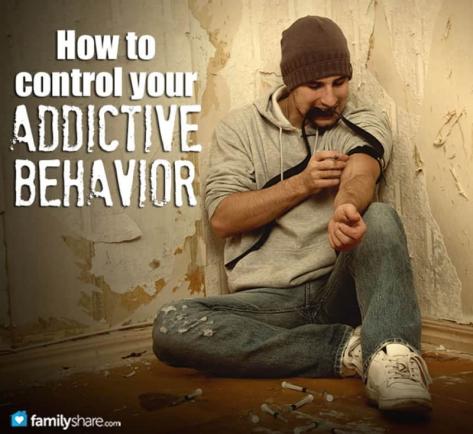
Are you at risk for addictive behaviors? Some people are genetically predisposed to addictive behavior. It is common for people who have addictive behaviors to be depressed. Often people who have addictions are that way because they are trying to fill a need in their lives.
Some ways you can determine whether someone has an addictive behavior
A addicted person becomes obsessed with an object that he constantly thinks about, an activity that he repeats over and over or substance abuse whether it be drugs or alcohol.
The person seeks out and engages in behavior even though he knows it is causing harm to himself or to someone close to him.
The person compulsively engages in an activity even when she doesn't want to because she can't stop herself. When she stops this behavior, she exhibits symptoms such as irritability, cravings, restlessness and depression.
An addicted person denies he has problems with his addictive behavior and cannot stop himself or even recognize the negative effects it has on him and the people around him.
An addicted person often hides this behavior even though the people around her are aware of what she's doing and start pointing it out to her.
People with addictive behavior often suffer from depression.
It is common for someone who grows up in a home where there is physical abuse or substance abuse to follow in his or her parent's footsteps and continue this pattern of behavior with a spouse or child.
Some addictive behaviors an individual may exhibit are
-
Exercise
-
Shopping
-
Eating disorders such as anorexia, bulimia, or compulsive eating
-
Gambling
-
Pornography
-
Substance abuse
-
Physical abuse

